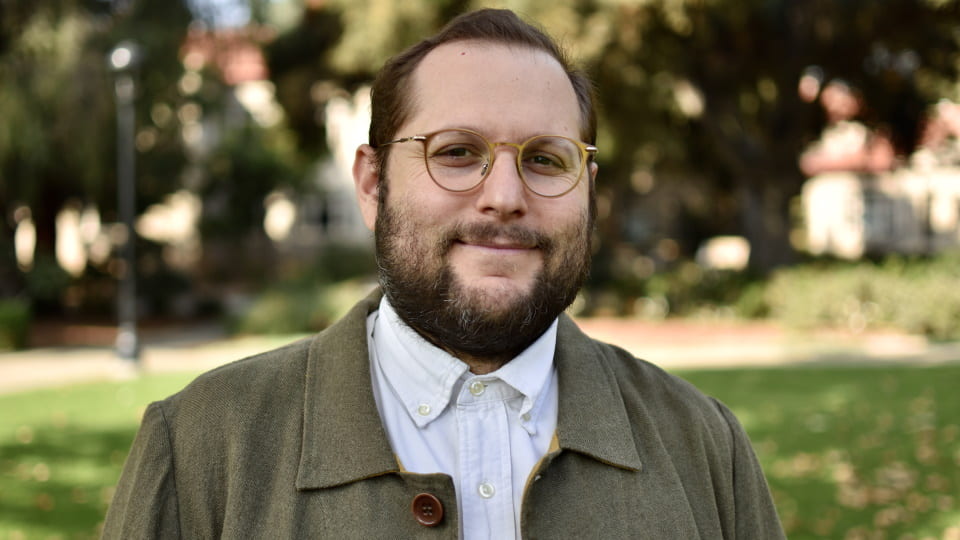Transitioning to life at UCI comes with a steep learning curve. This is especially true for first-gen students, who aren’t always sure what to expect when they walk onto campus for the first time. If you asked, many first-gen students would describe their first Fall Quarter as an onslaught of new people, unfamiliar living environments, higher academic expectations, and the nagging feeling that they are in over their heads. To make matters worse, feeling unprepared or confused can be alienating, making it difficult to reach out and find support.
As a former first-gen student, few understand these challenges as intimately as Scott Lerner, Assistant Course Director for Writing 39C and Coordinator of First Generation Initiatives in the School of Humanities. This is why Scott developed a specialized course to help incoming first-gen students in the School of Humanities acclimate to campus life. With support from the School of Humanities, UCI Humanities Center, and the UCI Composition Program, Scott launched the pilot course “Being the Future: First-Generation Student Success and Belonging in the Humanities” this Fall Quarter 2021.
Open to incoming first-gen students majoring in the humanities, the course is designed to serve as an introduction to UCI and the humanities curriculum. “My goal is to help students transition successfully and confidently to college and continue on a path of success,” Scott explains. “By the end of the course, students will begin the process of establishing a network of peers, faculty, and staff to engage and consult with throughout their career at UCI and beyond.”
To accomplish these goals, the course offers a welcoming space for students to connect with other first-gen students, faculty, and staff and form communities of support. Additionally, the course empowers students to articulate their needs, encourages them to develop sustainable habits, and helps them navigate campus resources and opportunities.
Scott shares that one of the reasons he is excited to teach this course is its interactive seminar design. Classroom activities revolve around group discussions that invite students and guest lecturers to share their personal experiences and engage with each others’ stories. Scott says:
“Our discussions are meaningful and wide-ranging; we share stories and experiences in a comfortable, supportive environment. Visiting faculty offer their unique perspectives in this same environment, fostering dialogues and conversations that I feel are both enriching and uniquely open. I am truly excited about how our weekly discussions can help contribute to first-gen student success and belonging on campus as well as to an openness in discussing first-gen identities and the range of experiences and perspectives that come along with these identities.”
Following the theme of personal reflection and authentic sharing, course assignments include weekly journal prompts that ask students to offer their own insights on questions such as “What is college, and how do we navigate the challenges we face now that we are here?,” “What does it mean to identify as a first-generation student on campus, and how can we understand this identity to help ourselves succeed?,” and “How do we find meaning in what we’re doing?” The course will culminate with a personal narrative project where students will reflect on their first quarter in college and the personal transformations they have experienced.
Ultimately, Scott hopes that the course will help students recognize that their first-gen identities are strengths to be proud of. He also wants students to walk away feeling more confident and in control of their college experience.
“It’s my hope that students will leave the course with a real sense of what they can—and hopefully will—contribute to our community. I would like students to see their experiences, skills, backgrounds, and interests as assets. I’d like students to see themselves as contributors to knowledge creation in the university and as voices able to articulate what it is they want to contribute to the university as well as what they want from the university.”
To learn more about Scott’s course “Being the Future: First-Generation Student Success and Belonging in the Humanities,” click here. To check out Lucid, the first-gen undergraduate journal co-founded by Scott, click here. For more first-gen stories, click here.

